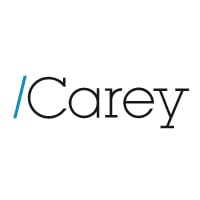

Managing director, legal | Credicorp Capital



Mariana Gómez Moffat
Managing director, legal | Credicorp Capital
How do you approach managing legal aspects during periods of instability or crises, and how does your legal strategy align with the broader business strategy to ensure the organisation’s resilience?
The most important lesson I have learned in managing a team during periods of instability or crisis is to prioritise the well-being and effectiveness of the team. People react differently under extreme circumstances; some may excel, while others may struggle to maintain their usual levels of productivity or motivation. Therefore, it is crucial to ensure that every team member performs their best given the circumstances. This involves providing support, fostering open communication, and being adaptable to their needs.
As a manager, it is important to be empathetic and recognise the signs of stress and burnout. Regular check-ins and creating an environment where employees feel safe to voice their concerns and suggestions can significantly improve morale and productivity.
The principle of focusing on people extends beyond the internal team to all stakeholders. Continuous communication with stakeholders is essential to navigate through periods of instability. Internally, it is crucial to keep employees well-informed about the measures being taken to address the crisis, as well as any other significant decisions that might impact them.
Externally, understanding the concerns and needs of clients, suppliers, and counterparties is vital. Each of these stakeholders will be affected differently by the crisis, and their challenges can directly impact a business. Maintaining open lines of communication with them helps in gaining a better understanding of their situations. For example, if suppliers are facing significant disruptions, it might be necessary to seek alternative sources or renegotiate terms. Similarly, staying attuned to clients’ evolving needs can facilitate adapting your services or products to better serve them during these times. Monitoring how the crisis affects these external parties is crucial, particularly when they are severely impacted, as it can lead to contract breaches, loss of guarantees, or other significant impacts on your business.
During crises, the regulatory landscape can change rapidly. It is crucial to stay abreast of any new laws or regulations that might affect your business. This involves not only monitoring changes but also understanding their implications and ensuring compliance. Regularly consulting with legal experts and actively participating in industry associations can provide valuable insights and updates. Proactive engagement in this area can help prevent legal issues and navigate through the regulatory complexities that often accompany periods of instability.
Within the company, it is essential to actively participate in the business planning process and new initiatives. Establishing clear priorities ensures that the team focuses on the most critical goals. This necessitates aligning the team’s efforts with the company’s overall strategy. Equally important is ensuring that your team has the necessary capacities and resources to achieve these goals. Regularly reassessing priorities and being prepared to adapt, when necessary, can help maintain progress despite the challenges posed by the crisis.
Collaboration with the compliance, audit, and risk management teams is crucial. Sharing information and insights across these functions helps create a unified approach to managing the crisis.
In my experience, staying well-informed, maintaining continuous and open communication, and adopting a comprehensive approach to managing legal and operational challenges during periods of instability significantly enhance organisational resilience.
How do you prioritise diversity and inclusion within your legal department, and what initiatives have you implemented to foster a more inclusive and equitable work environment?
In addition to my role as Managing Director of Credicorp Capital, I also serve as the Gender Equity Officer of Credicorp Group. We have implemented a gender equality program that applies to everyone, including the legal teams within Credicorp.
The program comprises the following pillars:
(1) Gender Balance ; we actively seek to achieve gender balance at all levels of the organisation, with a particular focus on increasing women’s representation in senior leadership roles, where the gap is most apparent. We monitor our gender diversity metrics and balance monthly.
We oversee various initiatives aimed at enhancing female participation across different segments of our organisation:
Bias-free selection processes: At Credicorp, we strive to ensure our selection processes are free of biases. To achieve this, we have developed a selection process that includes: (i) proactive searches for female talent, (ii) use of gender-neutral language in job postings, (iii) interviews conducted by mixed-gender pairs, (iv) bias-free interview workshops for interviewers, (v) use of blind CVs, and (vi) balanced shortlists at the end of each process.
Bias-free selection processes: At Credicorp, we prioritise ensuring our selection processes are free from biases. To achieve this goal, we have developed a selection process that includes: (i) proactive searches for female talent, (ii) use of gender-neutral language in job postings, (iii) interviews conducted by mixed-gender pairs, (iv) bias-free interview workshops for interviewers, (v) use of blind CVs, and (vi) creation of balanced shortlists after each process.
Credicorp Mentoring Program: we initially launched a women-to-women pilot in our first cohort. Since then, to integrate men into our gender equity initiatives and raise awareness of the challenges women face in their careers, we have also included men.
Women’s Networking Networks and Communities: We have created women’s networks across all our companies to foster connections among female talent and promote their professional development.
Credicorp Employer Brand Strategy: Our employer brand strategy prioritises gender equity and includes proactive efforts to attract female talent. Additionally, we have implemented a women’s spokesperson plan aimed at showcasing our female leaders across all segments of the regional talent market.
Talent Development: We regularly review and monitor key milestones in women’s careers to implement specific actions that support their advancement by eliminating biases that could hinder their development, starting from the selection process. In 2024, we will continue to focus on addressing unconscious biases, particularly within evaluation and promotion processes.
Women’s Leadership Programs: We have established women’s leadership programs aimed at providing women with enhanced tools to advance their careers at Credicorp.
(2) Gender Pay Gap
In 2023, we conducted our third pay gap measurement using the Equal Pay Gap methodology, an international standard indicator. Credicorp is now pleased to report that there are no gender-based pay gaps.
(3) Harassment-Free Workplace
At Credicorp, we are dedicated to maintaining a safe workplace with zero-tolerance towards harassment. We continually enhance communications, workshops, training, and other initiatives to address and prevent harassment. This includes highlighting behaviours that constitute harassment and increasing awareness among our employees, especially regarding comments that may be perceived as sexist.
(4) Work-Life Balance
We monitor the workload of our employees through several surveys throughout the year and compare the results by gender. We also have implemented a hybrid work model that combines the best aspects of remote and presential work. Additionally, we provide benefits for new mothers and fathers.
We are currently piloting a programme to track mothers returning to work after their leave, aiming to ensure their smooth reintegration and identify any additional support they may need from the company.
Managing director, legal, and CEO Chile | Credicorp Capital
Managing director legal | Credicorp Capital